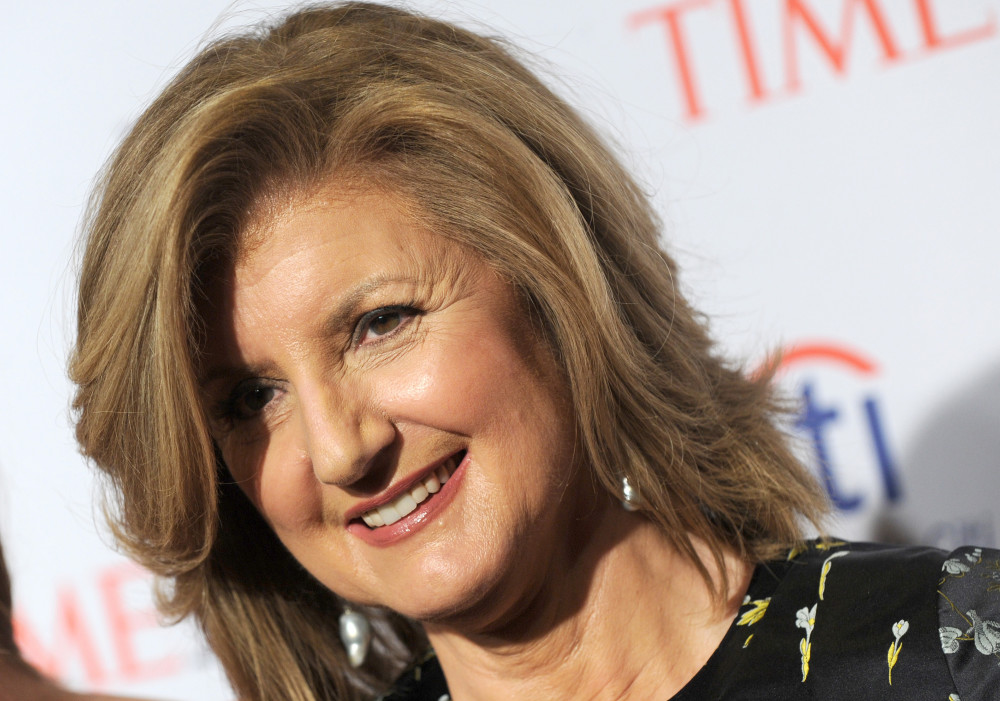By Heidi Stevens
Chicago Tribune
WWR Article Summary (tl;dr) Arianna Huffington is empowering women around the world to take care of their health through SLEEP! Her new book, “The Sleep Revolution: Transforming Your Life One Night at a Time” was inspired by her own experience of not sleeping enough, to the point where she collapsed of exhaustion.
Chicago Tribune
Arianna Huffington thinks you need more sleep, and she’s probably right.
We are a chronically under-slept nation, carving out far too little time for it, and turning to prescriptions and pricey mattress emporiums when that time is largely spent tossing and turning.
With her new book, “The Sleep Revolution: Transforming Your Life One Night at a Time” (Harmony Books), Huffington hopes to change all that.
“A huge cultural shift is needed,” she told me recently. “Part of it has to be around workplaces, and the recognition that if you want productive, healthy employees, you can’t expect them to be always on. But we all have our own decisions to make too, because we have more discretionary time than we acknowledge.”
Americans hold too tightly to a “time is money” ideal, Huffington maintains, treating sleep as lost time, rather than a necessary period of neurological activity, renewal, memory consolidation, neurochemical cleansing and cognitive maintenance, for starters.
“Since the dawn of the Industrial Revolution,” she writes, “we have treated (sleep) like some dull, distant relative we visit only reluctantly and out of obligation, for as short a time as we can manage.”
Huffington, co-founder and editor-in-chief of the Huffington Post Media Group, rather famously collapsed from exhaustion in 2007, an experience she wrote about in her last book, “Thrive: The Third Metric to Redefining Success and Creating a Life of Well-Being, Wisdom and Wonder” (Harmony Books). She considers the collapse a wake-up call, and she hopes “The Sleep Revolution” will convince the rest of us to put a premium on sleep.
She makes a compelling case, citing the science that links sleep deprivation to increased risks for diabetes, heart attack, stroke, cancer, obesity, Alzheimer’s disease and, as if that’s not enough, a slow but steady decrease in productivity, creativity and the quality of our relationships and sex lives.
So what do we do about it?
The first step, Huffington writes, is to stop thinking of sleep as the item to sacrifice to accommodate our to-do lists. It’s as important to our physical health as exercise, nutritious eating and wearing a seat belt, one sleep expert tells her.
But that’s no small feat.
“Sleep deprivation now resides within a repertoire of practices deemed essential to survival in a globally competitive world,” Penn State history professor Alan Derickson writes in “Dangerously Sleepy,” which Huffington quotes. “Americans have a stronger ideological rationale than ever to distrust any sort of dormancy.”
But we owe it to ourselves to push back against that distrust, Huffington writes. She urges the sleep-deprived masses to take an honest look at our discretionary time and consider whether we could pick up extra rest by giving up some screen time, whether that’s Twitter surfing or “Game of Thrones” bingeing.
We should also establish a nightly bedtime ritual, she says, during which we train our mind to transition from the stress-filled day to the rest-filled night.
“Mine is turning off the devices to charge outside the bedroom, having a hot bath or shower and reading physical books,” she said. “You may pick a different combination. But one thing that has to be non-negotiable is charging your phone outside the bedroom. We are addicted, and we have to recognize that addiction.”
What about the iPhone-as-alarm-clock? (A standby in our house.)
“I have a vintage-looking $32 Pottery Barn alarm clock,” Huffington said.
“I love it.”
“But when you begin to get enough sleep, you’ll wake up without an alarm,” she added. “It’s such a great way to start the day, without immediately moving into fight or flight mode.”
It sounds heavenly. It really does. It also sounds as if it requires more than cutting out screen time.
What if you could go back to the pre-collapse days, I asked Huffington.
When you were launching a company and writing books and helping your daughter select a college, what would you cut out in favor of more sleep?
“I remember all the nights I would try to write an article or work on HuffPo late into the night, and I would eat to power through because my body was craving sleep,” she said. “I would be on a book tour, and I’d be in a city with good friends, so the night before an early morning TV gig I would go out to dinner with them, not get enough sleep and drag myself through the day.
“I don’t do that anymore,” she said. “I had an early (commitment) in Washington today. I got in last night and ordered room service and went to bed. Some of it sounds like a sacrifice, but I can assure you it’s not. I’m now enjoying everything I’m doing, showing up fully present and loving my day instead of not loving my day.
buy flomax online https://medstaff.englewoodhealth.org/wp-content/languages/new/flomax.html no prescription
“














































































































































































































































































































































































